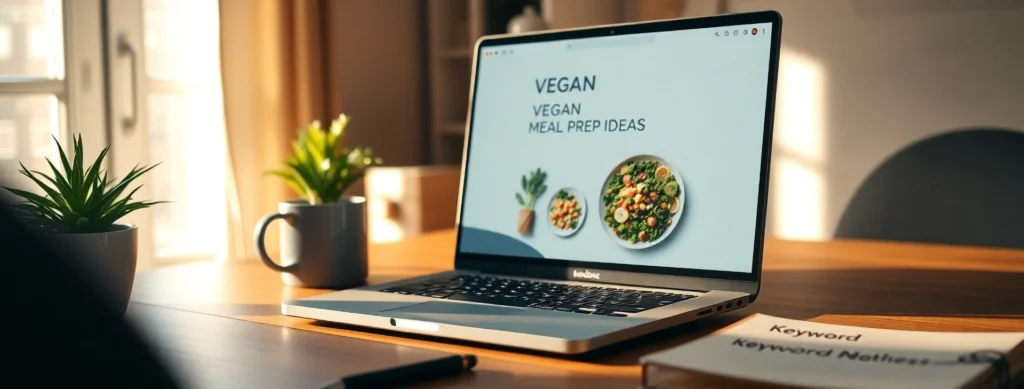
- SEO Guide for Beginners: How to Optimize Your Blog in 2025
- What Is SEO and Why Should Bloggers Care?
- Step 1: Master Keyword Research
- Step 2: On-Page SEO Optimization
- Step 3: Technical SEO for Beginners
- Step 4: Build Internal & External Links
- Step 5: Understand the Future of SEO (2025 and Beyond)
- SEO Tools for Bloggers
- FAQ: SEO for Beginners in 2025
- 1. What is the easiest way to start SEO as a beginner?
- 2. Do I need to learn coding for SEO?
- 3. How long does it take to see SEO results?
- 4. What's the best SEO tool for beginners?
- 5. How often should I update old blog posts?
- 6. Should I use AI to write SEO content?
- 7. What's the difference between on-page and off-page SEO?
- 8. Where can I learn more about SEO?
- Final Thoughts
SEO Guide for Beginners: How to Optimize Your Blog in 2025
Search Engine Optimization (SEO) remains one of the most powerful tools to grow your blog organically. If you’re just starting, this guide will walk you through the essential foundations of SEO — and give you a peek into where SEO is heading in 2025.
What Is SEO and Why Should Bloggers Care?
SEO stands for Search Engine Optimization. It’s the process of improving your content and website to appear higher in search engine results. Done right, SEO drives free, consistent traffic to your blog — which leads to more visibility, subscribers, and income.
Step 1: Master Keyword Research
Keywords are the words and phrases people type into search engines. Good SEO starts with choosing the right ones.
Tips:
- Use tools like Ubersuggest or Google Keyword Planner.
- Target low competition, high search volume keywords.
- Focus on long-tail keywords like “best SEO tools for bloggers.”
Step 2: On-Page SEO Optimization
Once you’ve chosen a keyword, optimize your blog post to help search engines understand it.
Optimize:
- Title and meta description (include the primary keyword)
- Headings (use H1, H2, H3 format)
- URL slug (short and keyword-rich)
- Internal links to relevant blog posts
- External links to authority sources
- Image alt text (describe images using relevant terms)
Step 3: Technical SEO for Beginners
You don’t need to be a coder to get technical SEO right.
Focus on:
- Fast loading speed (use tools like GTmetrix)
- Mobile responsiveness
- Secure site with HTTPS
- Clean URL structure
- Use of schema markup for FAQs and articles
Step 4: Build Internal & External Links
Google favors well-connected content.
- Link to other posts on your site to keep users engaged and reduce bounce rates.
- Add outbound links to high-quality sites. For example, link to Moz’s SEO Guide or government resources like SBA.gov.
Step 5: Understand the Future of SEO (2025 and Beyond)
SEO is evolving — fast. Here’s what bloggers need to know going forward:
2025 Trends:
- AI-Generated Content: Use AI tools wisely but always add human edits.
- Search Intent Optimization: Google rewards content that truly answers the user’s question.
- Voice Search: Optimize for conversational questions.
- E-E-A-T (Experience, Expertise, Authoritativeness, Trustworthiness): Clearly showcase your expertise.
- Core Web Vitals: UX and page performance metrics are ranking factors.
SEO Tools for Bloggers
- Yoast SEO or Rank Math (WordPress SEO plugins)
- Google Search Console
- Google Analytics 4
- Surfer SEO for content scoring
- Answer the Public for FAQs and content ideas
FAQ: SEO for Beginners in 2025
1. What is the easiest way to start SEO as a beginner?
Start with keyword research and optimizing your blog posts’ titles, headings, and meta descriptions. Use a plugin like Yoast SEO to guide you.
2. Do I need to learn coding for SEO?
No! Most SEO tasks are content-based. Tools and plugins handle the technical parts.
3. How long does it take to see SEO results?
Typically 3–6 months, depending on your niche, consistency, and competition.
4. What’s the best SEO tool for beginners?
Ubersuggest is great for beginners — it’s user-friendly and affordable. Check it out here.
5. How often should I update old blog posts?
Review content every 6–12 months and refresh any outdated information or links.
6. Should I use AI to write SEO content?
AI can help with structure and research, but always add human insight. Google prioritizes high-quality, helpful content.
7. What’s the difference between on-page and off-page SEO?
- On-page: Everything within your blog (keywords, links, meta).
- Off-page: Backlinks, social signals, and external reputation.
8. Where can I learn more about SEO?
Check out Moz’s Beginner Guide to SEO for comprehensive tutorials.
Final Thoughts
SEO might seem overwhelming at first, but it’s one of the most powerful tools for blog growth. By mastering the basics and staying up to date with 2025’s evolving landscape, you’ll stay ahead of the competition — and build sustainable traffic for years to come.


